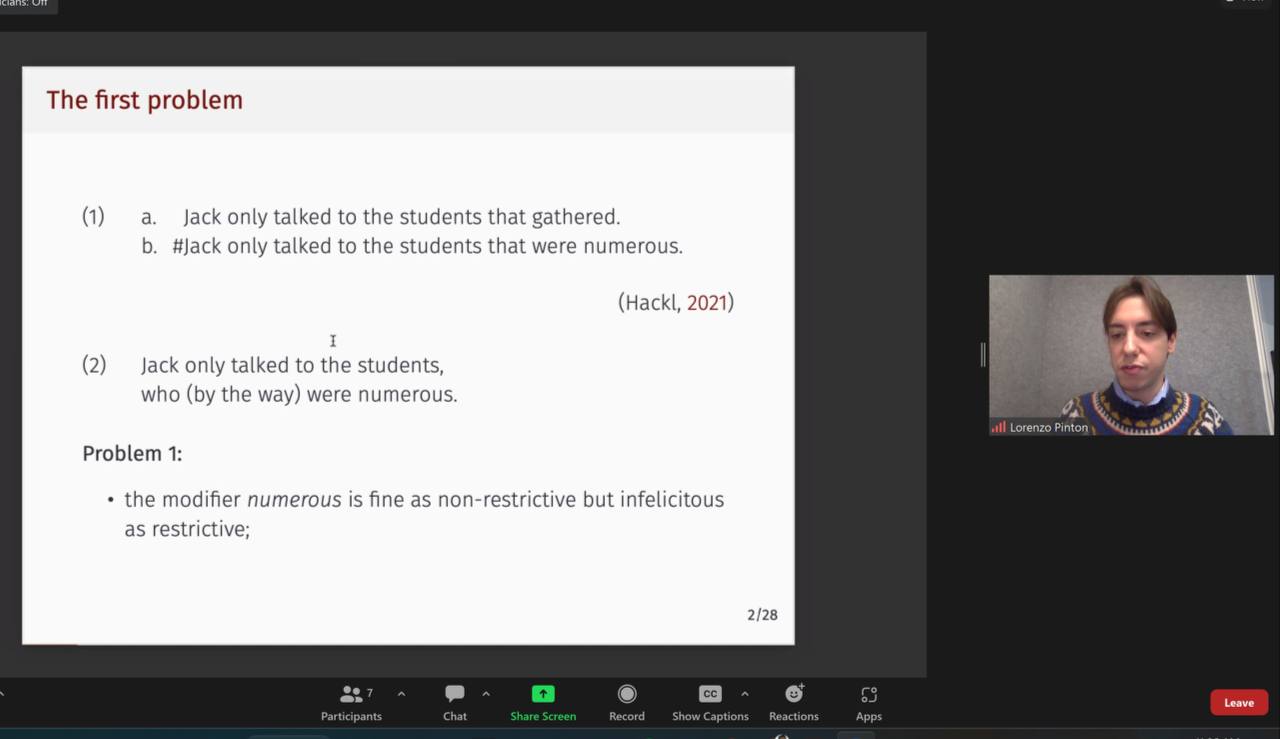On February 21, 2023, our second-year student Lorenzo Pinton gave a talk at S-Babble, a syntax-semantics discussion group at UC San Diego.
Title: “Numerous” relative clauses: permutation invariance, anti-restrictiveness, triviality
Abstract: It’s been observed that gather-like and numerous-like predicates give rise to different felicity patterns when combined with plural quantifiers (Kroch, 1974; Dowty et al., 1987; Champollion, 2010; Amiraz, 2021):
1) a. All the students gathered.
b. #All the students are numerous.
In this work, I aim to provide an analysis for similar data brought about by restrictive relative clauses:
2) a. Jack only talked to the students that gathered.
b. #Jack only talked to the students that were numerous.
While gather can be felicitously applied in a restrictive construction (2a), numerous cannot (2b). First, I will argue, through Italian data, that the problem is really tied to restriction, rather than relative clauses in general. Second, I will claim that predicates like numerous have a specific property, permutation invariance (i.e. the fact that such predicates only care about the cardinality of a group, and not about the specific members that compose that group). This property is problematic when numerous is combined with pluralized predicate, where pluralization is defined as the star operator (Link, 1984). In particular, I will show that when a pluralized predicate modified by numerous combines with the definite article the, it generates triviality, which leads to infelicity (Gajewski, 2002). A positive outcome of this solution is that it predicts the puzzling data in (3), namely the fact that (2b) becomes good if students is modified by another predicate:
3) Jack only talked to the gathered students that were numerous.
In fact, we can assume that, when gathered students is not pluralized, it will feed numerous plural individuals (since it is a collective predicate), without leading to triviality. In the presentation I will discuss the conclusion that this solution seems to suggest: namely that pluralization is a rather free operation, which is syntactic in nature and its application is governed by certain logical properties, like avoiding triviality. I would like to conclude showing some problems that might be lurking in the proposed solution, and possible extensions of this solution to the plural quantifiers puzzle in (1) that the literature has focused on so far.
(Thanks to JJ Lim for the screenshot!)
